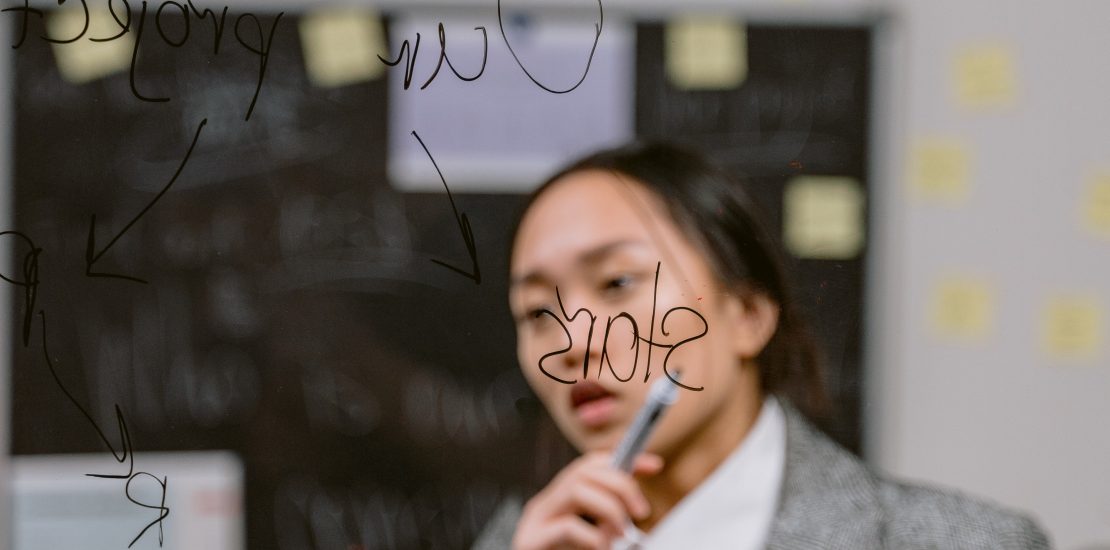- 13 March 2023
- Posted by: M-author
- Category: Workplace

A strong team is comprised of individuals with a range of abilities and strengths. We need workplace diversity to see things from different perspectives, identify ways to overcome challenges and give our businesses the competitive edge. So, why are many neurodivergent people excluded from the workforce and how can this be changed?
What is Neurodiversity?
Although each human body is made up of basically the same components, they don’t all work the same. We each have natural abilities, along with things we find a struggle to do or understand. Neurodiverse individuals think, perceive the world, interact and process information in quite a different way. This includes those who are autistic, dyslexic and dyspraxic.
Each neurodiverse individual is unique, yet one common factor is that they are under-represented in the workforce. According to ONS disability data 2021* only 29% of people diagnosed with neurodiverse conditions are employed.
I’m currently researching neurodiversity in the workplace as part of my studies. As part of Neurodiversity Celebration Week, I want to share some of the reasons why we need neurodiverse brains in business and how we start on this journey.
What are the Benefits of Neurodiverse Employees?
When provided with employment opportunities, neurodiverse individuals can become specialists in their field. Whilst each person is different, they often have a greater desire for order and control. This can be reflected in some of the following workplace skills:
- High levels of accuracy and attention to detail
- Technical design and problem-solving
- Pattern recognition, information recall and detailed knowledge
- Reliability, persistence and focus
- Innovative thinking and creativity
- Highly empathic
Are these desirable skills that would benefit your organisational goals?
In addition, we live in a time when we need fresh ideas to solve local, national and global issues. We need to shake up the old ways of doing things and see things from a fresh perspective. That means accepting that someone who may approach a challenge differently could be a huge asset.
BBC presenter, Chris Packham, has presented wildlife programmes since the 1980s. He is knowledgeable, passionate and has encouraged many viewers to fall in love with nature, and he has Asperger’s Syndrome. He said that his behaviours and social challenges have meant that people describe him as weird. However, he also credits the condition for his success.
Equally, Richard Branson has said that dyslexia fuelled his success, as it helped him see things differently. Alan Turing, Great Thunberg, Elon Musk, Albert Einstein, Sir Winston Churchill and Sir Isaac Newton are all neurodiverse. Their unique perception of the world has stood them apart and we admire their achievements.
Why aren’t More Neurodiverse People Employed?
So, with desirable skills and abilities, we need to understand how to break down the barriers to employment.
Firstly, it can be harder for some neurodiverse people to cope with traditional academic routes, so their potential isn’t always realised in formal qualifications. Having said this, others find strategies to manage school and university life and excel in their fields of interest.
Secondly, social interactions can be difficult, so recruitment processes can be a significant barrier to neurodivergent people. If you interview someone who makes no eye contact or offers direct responses to questions, they may not come across favourably. If they flinch when the door bangs or sit apart from other recruits, you may form judgements about their ability to fit in with the team.
Awareness of the difficulties that people with autism face in finding employment drove one mum to launch a chocolate company. Harry Specters produces award-winning chocolate in a Cambridgeshire factory and the founder’s son was the inspiration. He is now one of many autistic employees who work on chocolate production, packing, packaging design & photography and administration.
How Do We Increase Neurodiversity in the Workplace?
To benefit from the talents of neurodiverse people, we need to improve our understanding of what they need to channel their abilities and thrive. A starting point could be to watch the BBC series Inside Our Autistic Minds. Hosted by Chris Packham, it gives viewers insight into four individuals’ minds.
Secondly, rethink the recruitment process to make it more inclusive and accessible. This might include offering work experience to enable potential candidates to demonstrate competencies or using psychometric assessments. When interviewing someone, ensure that transparent language is used, so it is clear what is being asked. Also focus on abilities, rather than the condition. Has the individual got the skill set you need, even if their approach is different?
We also need to be aware of unconscious bias and put measures in place to avoid it. We are naturally drawn to people like us, however, we need variety and fresh thinking to drive business success.
Finally, ask the ideal candidate about what they need to thrive at work and make reasonable adjustments to provide it. These changes should be accessible to everyone as they reduce stigma and can benefit other employees too. These adjustments could transform the workforce, help fill skill gaps and drive business success.






